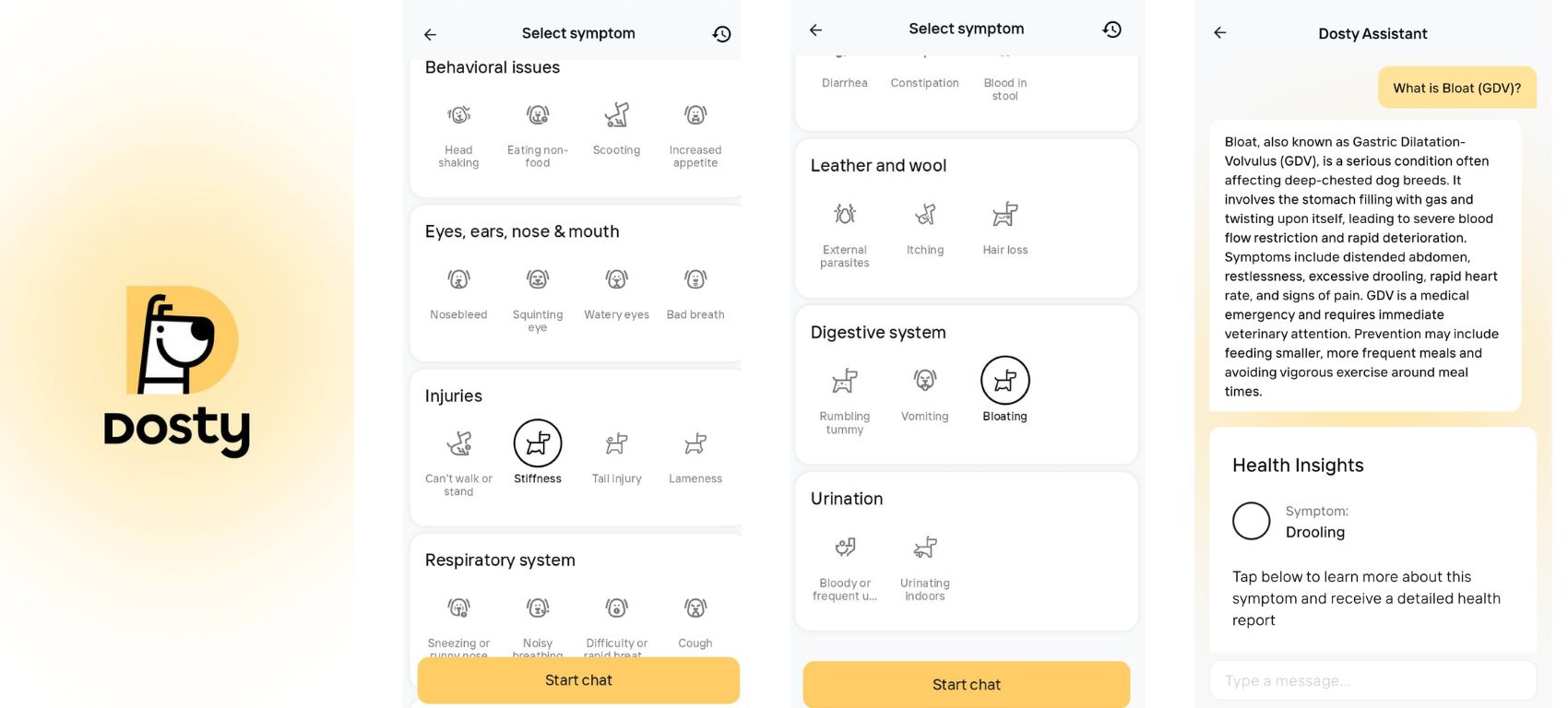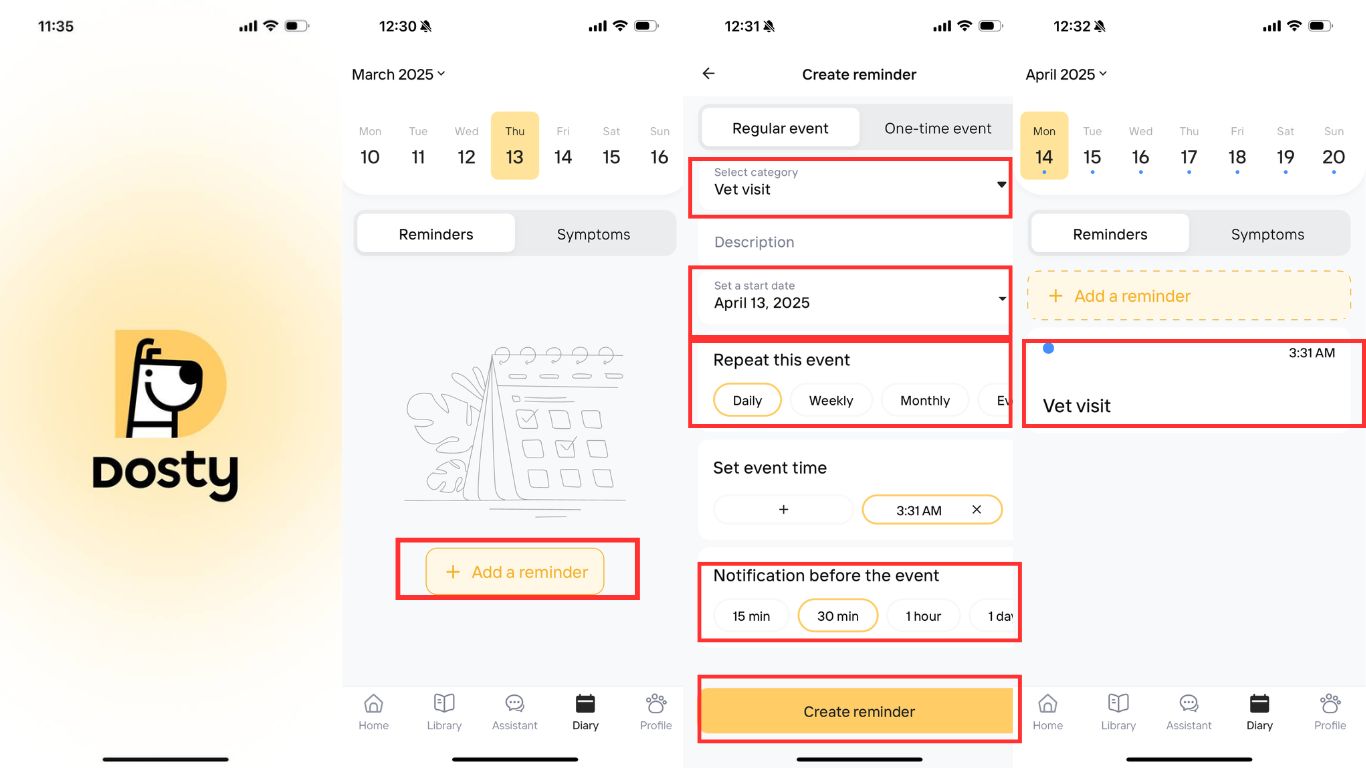On this page
How to Identify Common Health Issues in Dogs Early?
Catching early dog illness signs can save you from serious health conditions, vet bills and just help you give your dog a better quality of life. Many diseases progress slowly, with mild signs that may be ignored. Dogs are also instinctually good at masking pain, so it’s important for owners to be proactive about watching for adjustments in physical and behavioral patterns.
Routine health checks and early detection means that almost all treatment is successful and a dog’s life can be extended, says The American Veterinary Medical Association (AVMA). Early identification of symptoms allows for early treatment so that small problems don’t become life-threatening.

Signs of Dog Health Problems
Dogs don’t verbalize when they’re feeling unwell, so owners are tasked with identifying subtle signs of illness before they go further. Such signs may signal pain, infections, organ disease or emotional distress.
What Are Early Warning Signs of Dog Illness?
Preventing serious health problems in dogs depends on early detection. The following signs may be a sign of a health problem:
🐾 Anorexia – Not eating or not eating as much.
😴 Uncharacteristic lethargy – Sleeping too much or feeling drained.
💧 Excessive thirst and urinating – Possible signs of diabetes or kidney disease.
🤢 Vomit & Diarrhea – Persistent stomach-related situations may indicate infections or allergy.
🌡 Fever or warm ears – Another sign of infection or inflammation.
🦴 Limping or stiffness – Usually due to arthritis or joint pain.
Even slight changes can signify early signs of disease. If the symptoms last more than 24 hours, visit a veterinarian.
How to Spot Changes in Dog Behavior?
Behavioral changes is one of the most unnoticed signs of dog health issues. Dogs in pain or discomfort may exhibit:
🐕 Aggression or hostility − Even normally friendly dogs may snap or wish to avoid contact.
🚶 Restlessness or pacing − A cue of anxiety, pain or discomfort.
🏠 House soiling of formerly trained dogs – Often associated with urinary tract infections or gastrointestinal problems.
🎾 Loss of interest in play − A normally playful dog losing interest in activities may not be feeling well.
Changes in mood and activity levels should be monitored. A sudden or drastic shift in behavior often signals an underlying health issue.
Concerned something is “off” with your dog but don’t know what❓
Dosty’s Symptom Checker allows you to log physical signs, along with an AI Assistant that explains the likely causes along with personalized health insights so you can help catch any issues early.
📲 Download Dosty and enjoy with every tail wiggling more confidence!

Common Dog Health Issues
Like humans, dogs can become afflicted with a number of health concerns — whether because they are susceptible to them, or because of their size. Recognizing these issues can help mitigate them through early prevention and treatment.
What Are the Most Common Dog Health Issues?
Some medical conditions are common to dogs, particularly older dogs.
Many of these conditions can be managed, or even prevented, with proper care, diet, and early medical intervention, according to Dr. Hannah Collins, DVM.
How to Detect Dog Skin, Ear, and Dental Issues?
Skin, ears and teeth issues are some of the most common but overlooked problems that dogs deal with. Untreated, these problems can lead to chronic discomfort
Dog Skin Problems:
- Excessive scratching, biting or licking
- Red, flaky, or inflamed skin
- Abnormal hair loss or bald patches
Unsure if your dog’s itching or limping is serious❓
Log health issues using the Symptom Checker with Dosty and refer to the Assessment Report to get quick vet-backed insights on things like skin, ear or dental problems.
🚨 Download Dosty and catch small symptoms before they become serious.
_1744626126.jpg)
Dog Ear Infections:
- Ear scratching, tilting, rubbing it against furniture
- A dark viscous discharge or rancid smell from the ears
- Tenderness upon touching external ears
Dog Dental Disease:
- Persistent bad breath
- Yellowish or brown tartar accumulation
- Gums that bleed or have trouble eating
Explore blogs, breed insights, and expert advice on Dosty.co!

When to Seek Veterinary Help for Your Dog?
Certain canine health concerns need to be addressed by a vet right away. These symptoms require immediate veterinary intervention.
What Dog Symptoms Require Immediate Attention?
🚨 Emergency Signs in Dogs:
- Trouble breathing or gasping for air
- Seizures or sudden collapse
- Hard, swollen abdomen (sign of bloat)
- Severe vomiting or bloody diarrhea
- Unexpected loss of ability to walk or stand
These conditions can be fatal and require urgent treatment. Prompt response improves survival and averted complications
How Often Should You Take Your Dog for Checkups?
Regular veterinary visits catch health issues early before they become serious. How often you should take your dog for a checkup depends on your pet’s age and medical history.
Blood tests, weight tracking, dental checks, and parasite screenings, all of which can help us identify problems before the obvious signs pop up, are a staple of annual exams.
Missing vet appointments could cost your pup more than a missed checkup❗
With the Dosty App you're receiving personalized reminders for vet visits, symptom tracking, and age-based care tips - all to help your pup stay healthy through every stage in life.
📲 Get Dosty and manage your dog’s care like a pro.

FAQs About Dog Health Issues
1. What are the first signs of illness in dogs?
Early warning signs are loss of appetite, lethargy, vomiting, diarrhea, increased thirst and sudden changes in weight.
2. Why is my dog suddenly aggressive or anxious?
Behavioral changes that are sudden can indicate pain or illness. A vet check can eliminate medical issues.
3. How can I prevent obesity in my dog?
Staying at a healthy weight requires regular exercise, watching portion size and eating a high quality diet with few treats.
4. What is the best way to clean my dog’s ears?
Gently wipe the ear using a vet-approved ear cleaner and cotton pad. Skip the deep cleans with Q-tips.
5. How do I know if my dog has a dental issue?
Signs of dental disease include bad breath, difficulty chewing, bleeding gums and excessive drooling.
Conclusion: How to Keep Your Dog Healthy
Identifying the early signs of illness in dogs can greatly impact their health. Monitoring changes in behavior, skin or appetite can catch issues before they become serious. Routine vet checkups, a balanced diet, and preventive care are keys to a long, happy life for your dog.
👉 Get early detection and expert advice with the Symptom Checker and Chat Assistant.

